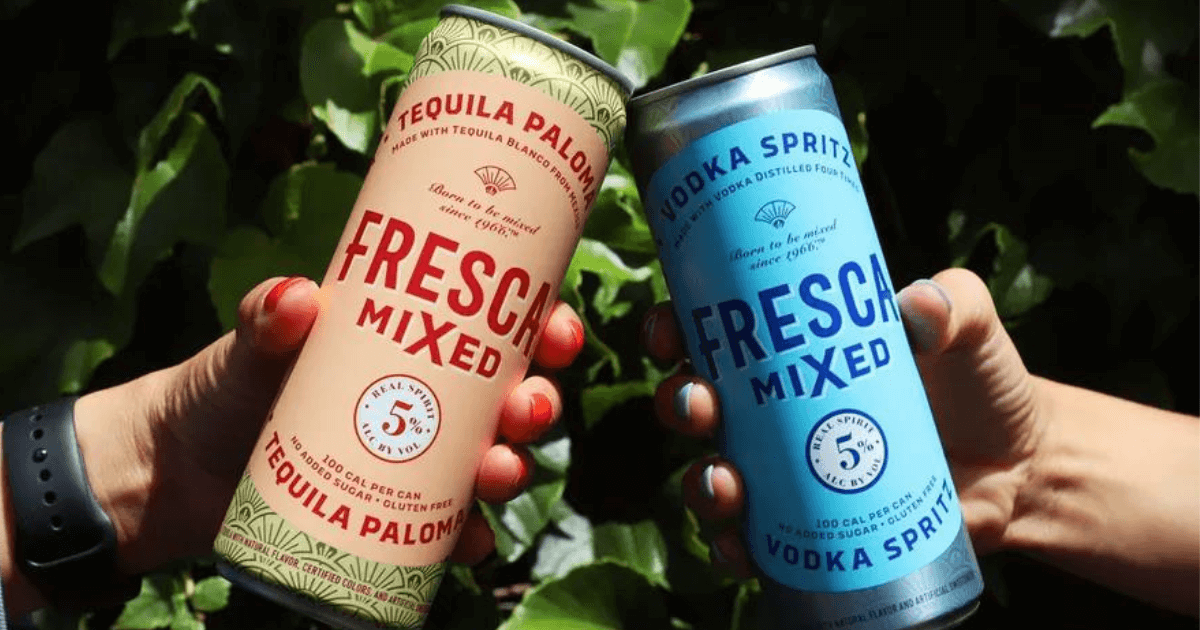Licensing Shakes Up the RTD Cocktail Market

Canned cocktails are increasingly gaining favor globally, and licensing is quickly becoming part of the mix.
The ready-to-drink (RTD) cocktail market is becoming a top-seller as drink companies seek to retain the boost that home cocktails received during the pandemic. And with both soft drink and alcohol companies working to broaden the reach of their brands, licensing is part of the recipe.
To be sure, Brown Forman’s Jack Daniel’s bourbon and cola—typically, but not always, Coca-Cola Co.’s namesake—have long been a popular combination. But now that combination is available in a licensed RTD Jack Daniel’s Old No. 7/Coca-Cola pre-mixed cocktail that launched in November in Mexico’s Riviera Maya region and will expand globally in 2023.
That was after Coca-Cola licensed alcohol supplier Constellation Brands for the Fresca Mixed RTD cocktails that were introduced in September. Both deals build on the soft drink giant’s launch of the Lemon-Do alcohol drink in Japan in 2018, which itself marked Coca-Cola’s return to the alcohol market decades after buying Sterling and Monterey Vineyards in California and New York’s Taylor Wine Co.
Not to be outdone, PepsiCo licensed Boston Beer Co. for Hard Mountain Dew malt beverages last year in watermelon and black cherry flavors (Baja Blast was added to the line in October). Boston Beer Co. also paired with Beam Suntory for Sauza Agave cocktails that were introduced earlier this year, while Pernod Ricard introduced its first RTDs for U.S. distribution under its Jameson Irish whiskey brand after having invested $22 million in a new canning line at its Fort Smith, AK plant.
These RTD efforts are chasing a sizeable market with sales that are forecast to increase 10% annually through 2026, with volumes growing at a 12% clip. The growth is expected to be driven by a younger middle class, about 40 million of whom enter the market for legal drinking each year and show a preference for something more cosmopolitan than traditional spirits. The $8 billion adult alternative beverage market, which includes RTDs, is forecast to grow 15-17% annually during the next three years, according to Constellation Brands.
“There was a tremendous amount of faddishness with hard seltzer and younger consumers wanted something lighter and more refreshing,” said Bill Cross, EVP of brand development at Broad Street Licensing, which brokered a licensing deal to bring the Hard Rock International brand into RTDs with Stewart Enterprises. “RTD cocktails will be a longer-term trend because cocktail culture has existed forever and they are just making it more convenient.”
Licensing will likely continue to influence the RTD trend as companies react to the market and look for new white spaces, Cross said.
Coca-Cola formed the New Revenue Streams group—formerly Venturing and Emerging Brands—to experiment with and test beverage and brand launches in emerging or new categories. It’s all part of drink and alcohol companies’ efforts to become “total” beverage companies, said EvercoreISI analyst Robert Ottenstein. Expanding in the alcohol business would help Coca-Cola double its customer base over the next 10 years and reach its goal of increasing annual sales 4-6%, Ottenstein said.
“It’s about testing the boundaries of what consumers want to engage with and the degree with which they engage with it, all in the service of continuing to make Coke relevant for the next generation,” Coca-Cola CEO James Quincey said at the recent Redburn CEO conference. “The boundary is set by two things—what is the consumer actually interested in and where is the growth in beverages going to be?”




